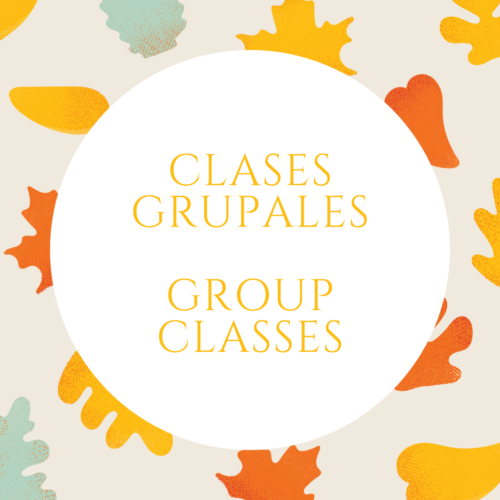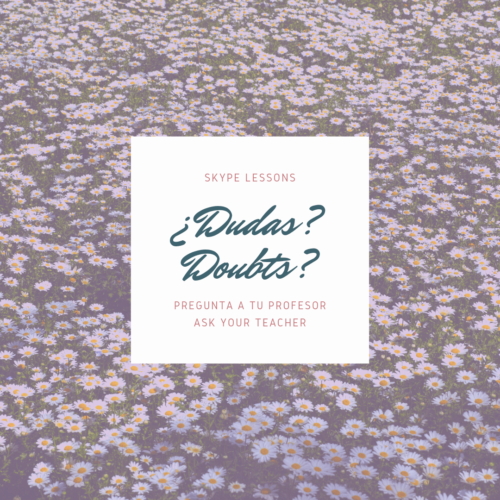Easy and entertaining methods to learn Spanish
As a student of languages, I always do as I think is best to learn a new language. It is true that at some point one must study the grammar, but it is also true that most of the Spanish that you can learn is not in grammar books but in the things you enjoy the most: Books, films, bars…
I was shocked when I watched this TEDtalk because I Immediately noticed that’s exactly how I learnt English and French, and (started to) learn German: I’ve always enjoyed the process, which means I use whatever limited knowledge I have on the language I want to know better and I write, watch, listen and entertain myself.
7 ways to learn Spanish without studying grammar:
Needless to say that travelling to a Spanish speaking country is always a good opportunity to understand Spanish better, but not only when you talk to the natives (which, I understand, may be a big step depending on which point of your learning process you are) but also when you go to buy groceries, when you stop at a sign on the street, when you overhear a conversation at the table next to yours, or even when you study your menu to see what you fancy that day.
Let’s not stop at the words and grammar. When we start to consider Spanish not only as a language that we need to learn in order to communicate better but also as a concatenation of cultural events (such as the mother yelling at her son at the beach or the shop assistant talking to their customers about those works that have paralyzed the road that morning, or many more scenarios you’ll witness if you stop and observe) then we start understanding and mimicking the intonation, pace and other important characteristics of fluent communication.
These are the things that are most difficult to learn if we limit our learning experience to books and classrooms (not impossible, just more difficult). Luckily, they are also the things that we can learn, enjoying our learning process by doing these things:
- Watching the telly.
Nowadays you have access to almost all of the programs there are on Spanish TV online, so wherever you live, you’ll find the program you like to watch in Spanish on the channels’ webpage. Of course, if you need recommendations, ask for advice on our forum, our Spanish students of English and Millinguals team will be delighted to help find your ideal program.
Students often ask me if they should watch the series/films with subtitles or without, and with English or Spanish subtitles. Well, that depends on how comfortable you feel without subtitles and how much you understand. The main idea is to enjoy, so if you feel that you aren’t getting anything of what you’re watching, then you definitely should use subtitles, and it doesn’t make your learning slower or of less quality because every little input you have in Spanish helps a million times. I promise, focus on enjoying, the rest will come!
Here you have links to some Spanish channels:
- Reading online articles on the topics of your interest.
Well, of course to learn proper Spanish, as with any other language, reading is a must. But let’s admit it, unless you are a bookworm, after your day full of obligations, chores, work… You are not going to find the moment to read a book in Spanish. I know I don’t, and I AM Spanish. But what I do find the time to read are recipes, advice on recycling, lists of things to do in the city I live, or a discussion about the most recent episode of Black Mirror, things I can read in five minutes, that I enjoy and that include a vocabulary I will surely use in real life, because, well, those topics are my interests!
So, again, select the topics you are curious about, google them in Spanish (use a dictionary if you aren’t sure how to say it) and enjoy learning a new language thanks to the broad information you have access to nowadays. Take advantage of it.
- Reading the news
This activity would be similar to the previous one, but this time, it gives you a different approach to Spanish culture. We all know that knowledge is power, well, this way you will be able to understand the attitudes towards work, politics, society of Spanish speaking people, and what’s more important, have topics to discuss when you travel to Spain that go further than the classic “hobbies, pets, plans”. Certainly, we all want to be fluent and be able to speak about interesting topics, but we also know that our vocabulary is limited, this way you’ll learn specific vocabulary on up to the minute information about the state of the country that you want to visit.
I’m not going to lie, reading the news in a foreign language is hard, so bear in mind that there’s no need to understand all of it. Hence, the first time you read the news in Spanish, just try to see how many words you do understand, then, the second time, try to figure out the general idea of what it’s been said. If you don’t put too much pressure on yourself, you’ll get there, I promise (I’ve experienced it myself).
- Using Pinterest to make a board on different interests in Spanish or a “language board”
- Language exchange
- Listening to podcasts
Again, using the Internet as a tool for language learning is always a good idea. As you know, the listening is one of the most difficult parts of learning a new language, and it is as true as it was about reading the news, that depending on the point of your learning process you are, trying to understand everything (or something) the speaker is saying can be a bit frustrating.
As in point 3, what I suggest is to go step by step and I recommend you don´t put too much pressure on yourself, and start by just opening your ears to the different sounds, the intonation, the pace and (why not?) try to find out if you understand any words you might already know and identify. After a few podcasts focusing on sounds, the next challenge is to get the general idea of what they are saying and then, understanding the podcast.
Moreover, using podcasts as a learning tool is full of advantages: You’ll get used to the sounds, pronunciation, learn vocabulary on topics you are interested about, and you’ll also be exposed to new structures and grammar which will definitely improve your Spanish.
The best part is that you can do this while you clean, exercise, drive, commute… And it helps A LOT. Guaranteed.
- Using language apps
Last (and least), to complement all these things is very advisable to use any of the many language apps there are (whether free or premium) on the market. Why only as a complement? In my experience these apps are normally very good for acquiring new vocabulary and also to practice some structures that are new for you and still don’t feel comfortable using. This is great, but without the actual practice (reading, listening, talking…) it’s also useless, as you’ll only be refreshing what you already know, and this new structures and vocabulary will be soon forgotten if you don’t actually use them.
In a nutshell, I recommend you use these apps to always keep in touch with your learning self, exposed to new information, but always do the rest in order to use this new information in other contexts.













